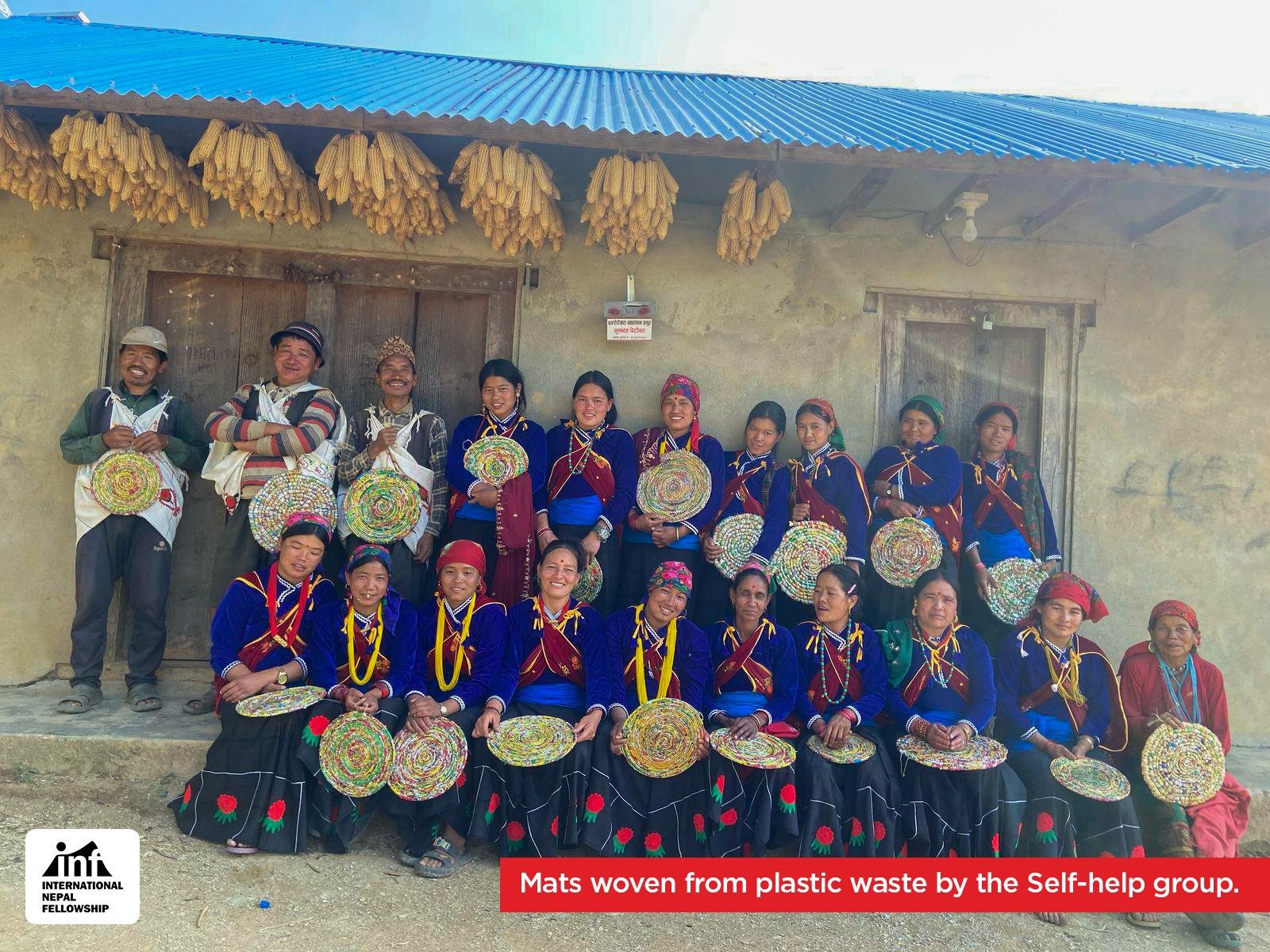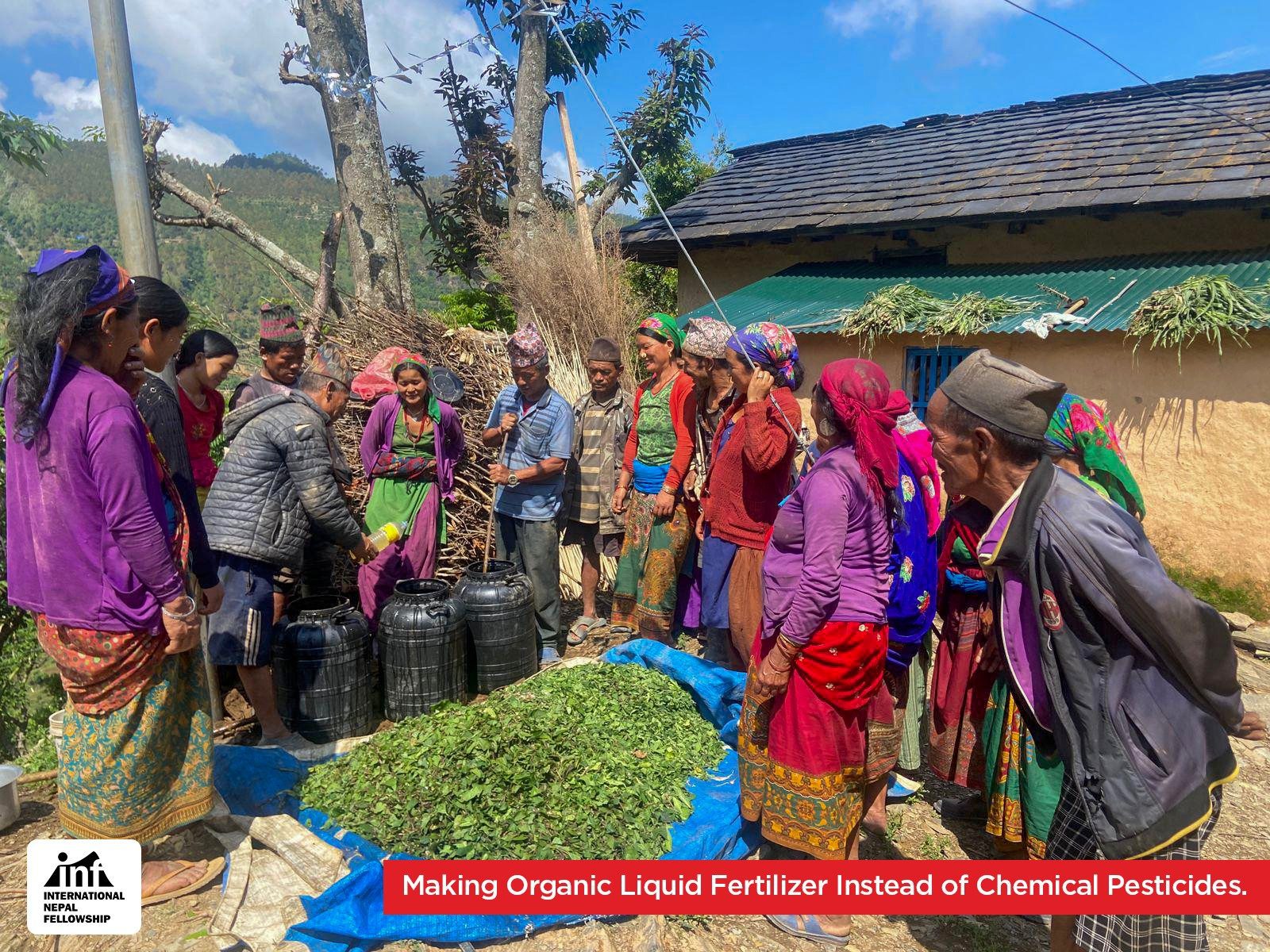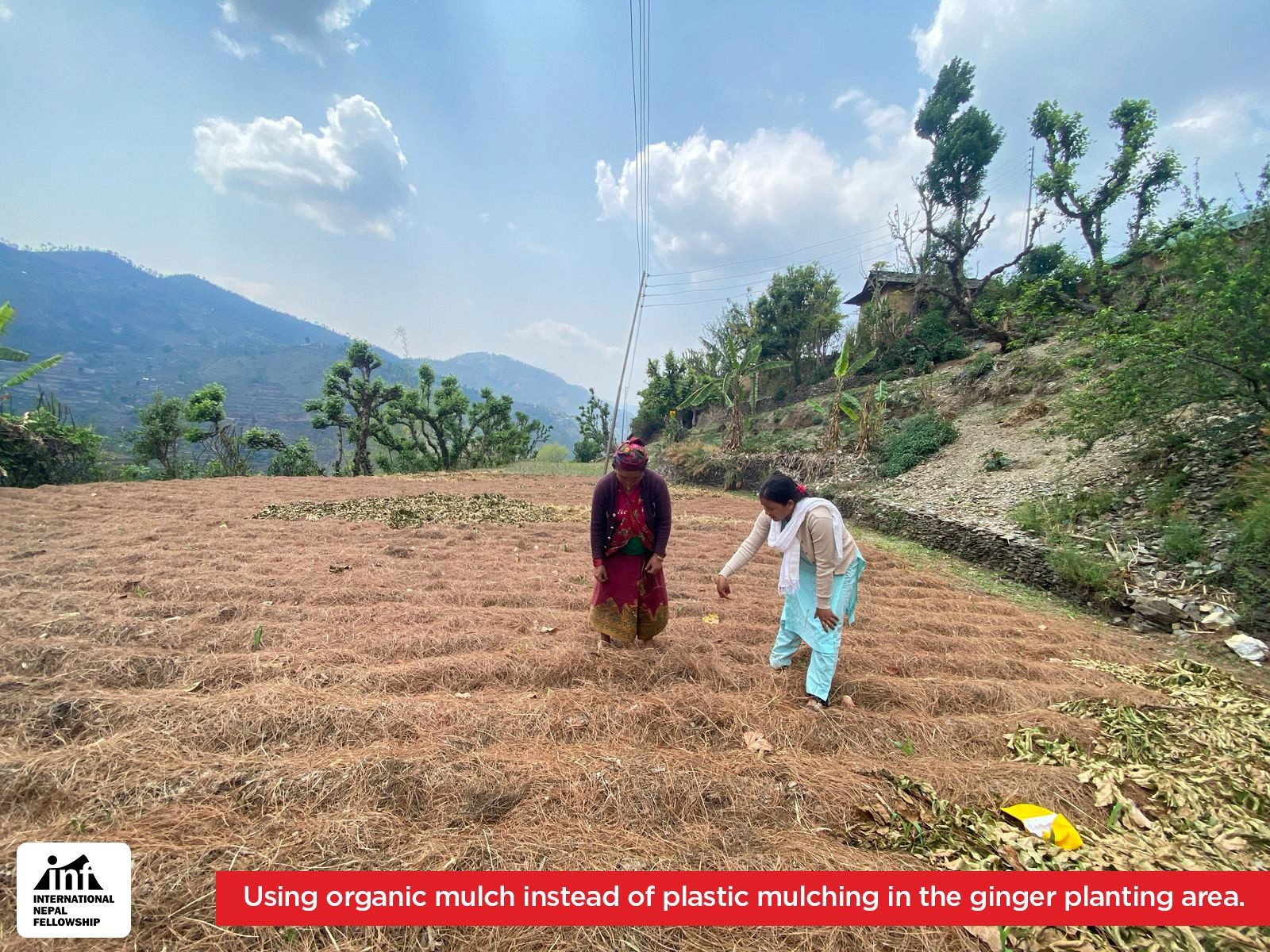Lissne is a small, remote village in Rolpa district, about a three-hour walk from the nearest ward office. Because of this distance, the village has limited access to government and non-government services.
Out of 80 households in the village, 4 are Dalit and the remaining 76 are Janajati. Nestled near forests and hills at an altitude above 2000 meters, the village is peaceful, surrounded by nature, and filled with birdsong from early morning.
Due to the distance from the ward office, people in the village often miss out on important information and services. Most rely on subsistence farming, and many do daily labor work to earn a living. Lack of awareness has led to poor waste management habits. People often throw plastic waste anywhere, even use it to start fires, not realizing the health and environmental risks.
Plastic waste scattered in fields reduces crop yields. In the past, plastic thrown in grazing areas has made animals sick or even led to their deaths. When plastic was burned openly, the entire village would smell bad, and many people developed breathing issues.
Biodegradable waste from kitchens and yards used to be dumped carelessly, harming the beauty of the village. In rainy seasons, water would pool around waste, attracting flies and mosquitoes, which spread diseases. Children and the elderly often fell sick, and people would go to traditional healers for treatment, sometimes with fatal consequences. On top of that, because of all the plastic waste, growing vegetables became harder. During the off-season, families had to rely on dried greens. Even if vegetables were planted, local free-range chickens would eat them all.
Seeing these problems, INF Nepal Rolpa branch, in coordination with the ward representatives, helped form a self-help group called Bataase Pokhara on October 1, 2024. The group aimed to bring positive changes to the village. They created rules and started raising awareness through discussions and visual aids, identifying problems and working together on solutions and action plans.
Each member of the self-help group took specific roles. For example, the Environment Protector Leader led conversations on reusing plastic waste. This got villagers thinking. They realized the damage plastic was causing to their health, environment, and crops. During a meeting on December 8, 2024, they decided not to throw plastic waste around anymore. Instead, they would collect it in sacks or baskets.
They picked up scattered plastics from fields and grazing areas and started reusing them. Some even began weaving mats (chakati) from plastic waste. For lighting fires, instead of using plastic, they switched to using pine needles, known locally as dhapleng.

The group also dug a 1 cubic meter pit for biodegradable waste. Instead of buying mats, members made their own cushions to sit on during meetings, which saved money. They now collect kitchen and yard waste in the pit and use the compost as fertilizer for their home gardens and fields.

The group cleaned nearby water sources and kept them tidy. Personal hygiene was also encouraged. Group members wear the same type of dress and do not come to meetings without cleaning up. The Home Garden Leader encouraged fresh vegetable growing by requesting seasonal seeds. Now, families grow vegetables in their own gardens.
To stop chickens from destroying the crops, model chicken coops were built in each home. The village looks cleaner, the surroundings are greener, and the livestock in grazing areas are no longer eating plastic.
For ginger farming, instead of using plastic mulch, the farmers now use organic mulch. This shift to organic mulch supports healthier soil and reduces plastic waste, further promoting sustainable agriculture in the village.

To prepare for emergencies, the group has started collecting grains, and each household contributes around NPR 500 (approximately USD 3.75) monthly to an emergency fund. They are using savings to start income-generating activities. With rules now in place, and everyone doing their part, the group is seeing real improvement.
Now, people believe that change starts with a change in mindset. They are proud of the positive changes and are planning for the future. They hope to soon declare their village a fully clean village. They also dream of making it a model village, clean, green, and organized.
In the agricultural sector too, they aim to move beyond subsistence farming towards income-generating and commercial agriculture. They are committed to supporting the ward in making the village fully clean and transforming their farming practices for a better future.
This inspiring story of Lissne village reflects how collective awareness and local action can lead to a cleaner, healthier, and more sustainable community. On this World Environment Day, their journey reminds us that even small steps in the remotest places can make a big impact for our planet.
Story by: Salina Budha Magar

.gif)